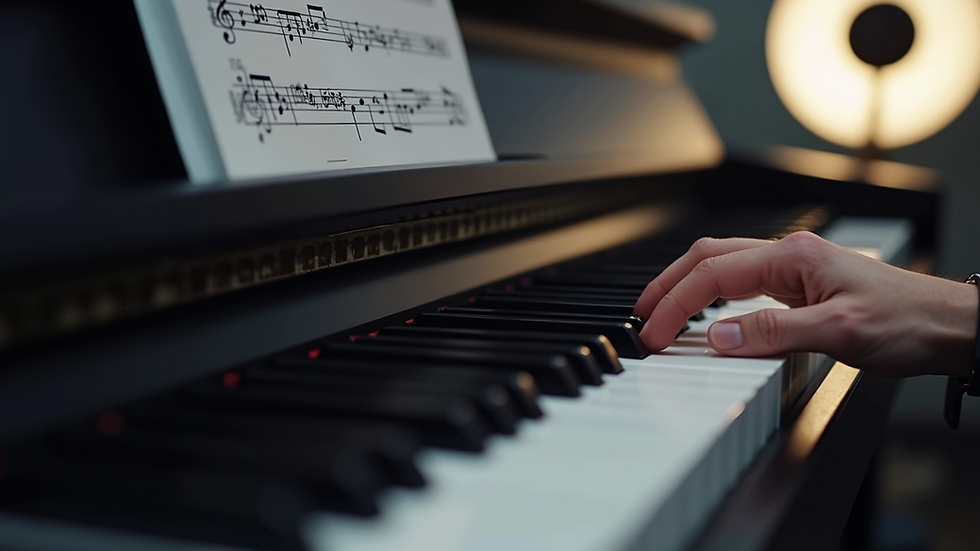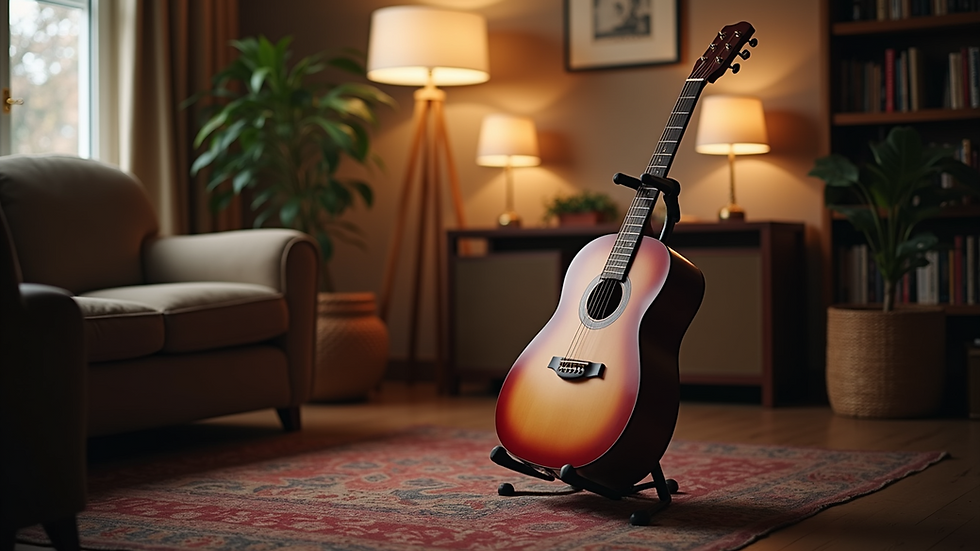Learn Keyboard Skills with Local Lessons
- BROOKLYN MUSICALS
- Oct 6, 2025
- 4 min read
Learning to play the keyboard is a rewarding journey that combines creativity, discipline, and joy. Whether you are a complete beginner or looking to improve your skills, local keyboard classes nearby offer a fantastic opportunity to learn in a structured and supportive environment. This post will guide you through the benefits of taking keyboard lessons locally, how to find the right classes, what to expect in terms of costs, and tips to make the most of your learning experience.
Why Choose Keyboard Classes Nearby?
Taking keyboard classes nearby has several advantages that can enhance your learning experience. First, local classes provide personalized attention from experienced instructors who can tailor lessons to your skill level and musical interests. This face-to-face interaction allows for immediate feedback and correction, which is crucial for developing proper technique.
Additionally, attending classes nearby means you can easily fit lessons into your weekly schedule without the hassle of long commutes. This convenience encourages consistent practice and attendance, which are key to progress.
Local classes also foster a sense of community. You get to meet fellow learners, share experiences, and even participate in group performances or recitals. This social aspect can motivate you and make learning more enjoyable.
If you are searching for keyboard lessons near me, consider checking out this local option that offers flexible schedules and expert instructors.

How to Find the Best Keyboard Classes Nearby
Finding the right keyboard classes nearby involves a few important steps. Start by researching local music schools, community centers, or private instructors. Look for reviews and testimonials to gauge the quality of teaching and student satisfaction.
Next, consider the teaching style and curriculum. Some classes focus on classical piano techniques, while others emphasize contemporary music or electronic keyboard skills. Choose a program that aligns with your musical goals.
Visit the location if possible to check the facilities and instruments. A well-equipped studio with quality keyboards and a comfortable learning environment can make a big difference.
Ask about class sizes. Smaller groups or one-on-one lessons often provide more personalized instruction. Also, inquire about the instructor’s qualifications and experience.
Finally, compare prices and schedules to find a class that fits your budget and availability.

How much per hour is a piano lesson?
Understanding the cost of piano or keyboard lessons is essential for planning your budget. The price per hour can vary widely depending on factors such as location, instructor experience, and lesson format (private or group).
On average, private keyboard lessons range from $30 to $70 per hour. Group lessons tend to be more affordable, often between $15 and $40 per hour. Some schools offer package deals or discounts for multiple sessions booked in advance.
Keep in mind that higher prices often reflect more experienced teachers or specialized instruction. However, affordable lessons can still provide excellent value if the instructor is qualified and the curriculum suits your needs.
When comparing prices, also consider additional costs such as materials, books, or recital fees.

Tips for Making the Most of Your Keyboard Lessons
To get the best results from your keyboard classes nearby, follow these practical tips:
Practice regularly - Consistency is key. Aim for at least 20-30 minutes daily to build muscle memory and improve skills.
Set clear goals - Work with your instructor to set achievable milestones, such as learning a new song or mastering a technique.
Stay patient and positive - Progress may be slow at times, but persistence pays off.
Record your practice sessions - Listening back helps identify areas for improvement.
Participate in recitals or group events - Performing in front of others builds confidence and motivation.
Ask questions - Don’t hesitate to seek clarification or extra help from your teacher.
Use supplementary resources - Apps, online tutorials, and music theory books can complement your lessons.
By actively engaging in your learning process, you will enjoy a richer and more rewarding keyboard playing experience.
Exploring Different Keyboard Styles and Genres
Keyboard classes nearby often expose students to a variety of musical styles. This diversity can help you discover your favorite genre and develop versatility.
Classical - Focuses on technique, sight-reading, and interpretation of composers like Bach, Mozart, and Beethoven.
Jazz - Emphasizes improvisation, complex chords, and rhythm.
Pop and Rock - Covers contemporary songs, chord progressions, and accompaniment skills.
Electronic and Synthesizer - Explores sound design, effects, and modern music production.
Discuss your interests with your instructor to tailor lessons accordingly. Exploring different styles can keep your practice sessions exciting and broaden your musical horizons.
Final Thoughts on Learning Keyboard Locally
Choosing keyboard classes nearby is a smart way to develop your musical skills with expert guidance and community support. With the right instructor, consistent practice, and a positive mindset, you can achieve your keyboard playing goals and enjoy the many benefits of music.
If you are ready to start your journey, consider searching for keyboard lessons near me to find a local class that fits your needs. Remember, every great musician started with a single note - your keyboard adventure awaits!


This post about learning keyboard skills with local lessons really makes music feel accessible — the way you break down starting tips and instructor insights is comforting for a beginner like me. I was reading it during a busy study week, and it honestly made me laugh because there were moments I just wanted to complete my online finance class so I could slow down and fully enjoy fun posts like this.